Executive MBA programme
Develop your capabilities to manage strategic and operational realities.
Open-enrolment
The leadership programme Executive Medical Management is tailored for the healthcare and life sciences sectors. It is designed for leaders in both public and private organizations, managing complex health and medicine-related administrations, where transformation, innovation, and implementation are integral to daily leadership tasks. The programme aims to enhance leaders’ understanding of the sectors’ conditions, deepen their knowledge of their governance, and emphasize the importance of change management.
Date:
Spring 2026
Lecturers:
Ewa Wikström, John Holmberg, Ulf Petrusson and others
Studytime:
16 days divided into 8 modules
Language:
English
Price:
To be announced
The leadership programme Executive Medical Management (15 ECTS, advanced level) aims to enhance the understanding of the healthcare and life sciences sectors’ conditions, governance, and opportunities for innovation and transformation.
The programme consists of 16 full days divided into eight modules, covering topics such as healthcare management, health economics, innovation & transformation, IT, and law. The modules will be conducted once a month.
The programme is coordinated by the Centre for Health Governance at the University of Gothenburg.
The module leads are from the University of Gothenburg and Chalmers University of Technology, chosen for their deep expertise in the healthcare sector and their proven track record in delivering advanced educational programmes.
The programme will be complemented by guest lecturers who provide up-to-date insights into relevant developments and represent a diversity of perspectives.
The course focuses on providing the knowledge and promoting the skills needed for leaders to manage complex healthcare organizations, drive and implement change using digital solutions, and leverage innovation as a tool within both public and private entities in the healthcare sector. This includes an emphasis on theory and frameworks and their importance for practical application. The programme is grounded in the need for effective collaboration between public and private stakeholders in the production of healthcare services, pharmaceuticals, and medical technology, requiring a mutual understanding of different institutional environments.
The course is characterized by a blend of lectures and group-based discussions. Practical examples from successful environments are continuously integrated, tailored to the relevance of each module.
The Executive Medical Management programme is delivered in eight modules over 16 days (see content details under Arrangement).
Upon completion, the participant will be able to:
Associate Professor, School of Business, Economics and Law, University of Gothenburg
Research Interests: Leadership, governance, and organization of the public sector, with a particular focus on healthcare. Special interest in the conditions for change management and the factors that contribute to positive outcomes.
Has extensive experience in teaching change management and leadership, with a particular emphasis on interdisciplinary collaborations and cooperation.
Previously served as the head of Health Academy West and is the editor of the book “Collaboration in Healthcare – From System to Practice” (2023), which provides a comprehensive overview of collaboration in healthcare.
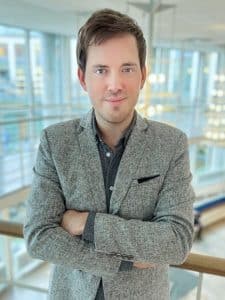
Professor in Applied Health Economics, Institute of Medicine, University of Gothenburg
Research interest: Health economic evaluation and its application as a basis for decision-making in prioritization and investment decisions in healthcare.
Has taught in commissioned education programs for several years in Sweden as well as at hospitals and universities in Italy, the USA, Brazil, and more.
Extensive experience in HTA at both regional and national levels, e.g., as a member of the decision-making council for pharmaceutical subsidies (TLV).

Professor of Health Governance,
School of Business, Economics and Law at the University of Gothenburg
Research interest: Health management and health governance and transformation in large organizations. The main empirical focus is the health ecosystem, often with elements of multi-level governance and/or collaboration in wider networks. Broad experience in leading and participating in interdisciplinary research.
Extensive experience in managerial training in the health sector at the School of Business, Economics and Law at the University of Gothenburg.
Board member in the steering group of SweLife and several interdisciplinary research centers at the University of Gothenburg, for example, CERA and AgeCap.

PhD, Senior Lecturer and Head of Division, Department of Applied Information Technology, Faculty of Science and Engineering, University of Gothenburg
Research interest: Digitalization and governance, digital maturity, and digital infrastructure. Broad experience with municipalities, regions, and government agencies, focusing on strategy, AI, and person-centered care.
Research leader, author, and engaging speaker
Swedish Center for Digital Innovation (SCDI)
Co-founder of Digital Governance
(www.digitalforvaltning.se)
Member of the steering group for GPCC, Centre for Person-Centred Care
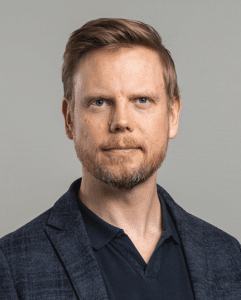
Professor of Information Systems,
Department of Applied Information Technology, Faculty of Science and Engineering, University of Gothenburg
Research interest: Exploring the intersection of governance, digitalization, and AI in large organizations, primarily within the public sector. Focus on Twin Transition.
Research leader, author, and engaging speaker
Swedish Center for Digital Innovation (SCDI)
Founder of Digital Governance
(www.digitalforvaltning.se)

PhD, Senior Lecturer, Department of Technology Management and Economics, Chalmers University of Technology
Research interest: Action research and change management in healthcare, focusing on improving healthcare processes and services through practical knowledge development. Often works in close collaboration with healthcare organizations to design and implement changes that address complex system challenges.
Particular focus on translating research into practice to enhance healthcare delivery and organizational effectiveness.
Extensive experience in guiding change initiatives, mentoring professionals conducting research within their own organizations, and leading educational programmes on quality-driven organizational development.
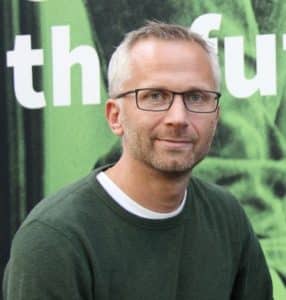
Professor, UNESCO Chair
Division of Physical Resource Theory, Chalmers University of Technology
Research interest: Sustainable transformation and learning for sustainable development. Co-founder of the Chalmers Initiative for Innovation and Sustainability Transitions.
Founder of the world’s first master’s program in Industrial Ecology and founder of Challenge Lab, which received the GUPES Green Gown Award in 2016.
Active as an advisor and expert internationally, including for the UN headquarters in New York on Agenda 2030, for UNESCO in Paris on learning for sustainable development, for UN-environment in Nairobi, and for the EU’s expert group on Ecoefficiency.
Board member of the strategic council at Sahlgrenska University Hospital.
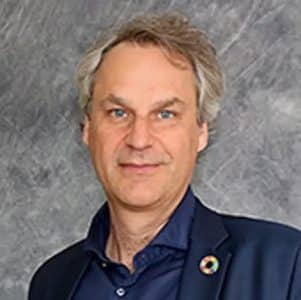
Postdoc, Division of Physical Resource Theory, Chalmers University of Technology
Research interest: Sustainable systems transformation through interdisciplinary and transdisciplinary research. Focus on understanding and addressing complex sustainability challenges in society using transformative approaches, with a particular interest in backcasting and social learning.
Contributed to the development of Challenge Lab at Chalmers, awarded the UNEP/EAUC GUPES Green Gown Award.
Participates in The Postdoc Academy for Transformational Leadership (2022-2024), an initiative by the Robert Bosch Foundation in collaboration with Humboldt University of Berlin, Leuphana University Lüneburg, Stockholm Resilience Centre, and the Dutch Research Institute for Transitions.
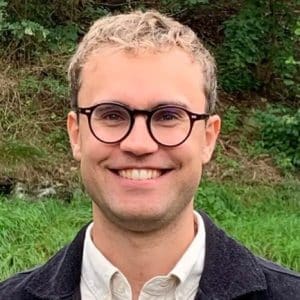
Senior Lecturer, School of Business, Economics and Law at the University of Gothenborg
Research interest: Governance in complex organizational contexts with a focus on management control and leadership. His latest research project, “Stressed by Control,” explored the impact of management control on leadership within both private and public sectors, with links to discussions on New Public Management (NPM) in public governance.
Engaged lecturer in executive eduction programs for organizations such as Volvo Cars, SKF, IKEA, Investment AB Latour, Capio, VGR, and the City of Gothenburg. Lectures in the Executive MBA program at the School of Business, Economics and Law at the University of Gothenburg, responsible for the module in Management Accounting.
Extensive consulting experience in organizational and governance challenges across both private and public sectors.
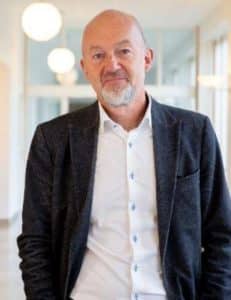
Professor of Jurisprudence, Department of Law, School of Business, Economics and Law at the University of Gothenburg
Research interest: Legal aspects of innovation with a particular focus on medicine, technology, and digitalization in healthcare. His research explores the role of regulatory compliance in quality improvement and innovation. Recent work focuses on digital transformation, medical technology, and the evolution of healthcare systems.
Extensive experience in leadership training for both industry and the public sector.
Active in strategic initiatives on person-centered medical technology and involved in the steering group for the Centre for Person-Centered Care (GPCC) at the University of Gothenburg.

Target audience:
Leaders in healthcare and life sciences managing complex health and medicine-related organizations, where transformation, innovation, and implementation are integral to daily leadership tasks.
Date and place:
The programme is delivered in eight modules, totalling 16 days. Fall 2025: Sep 11-12, Oct 6-7, Nov 5-6, Dec 4-5 2025, Jan 26-27, Feb 25-26, Mar 23-24 and Apr 23-24 2026.
Next cycle will start in the spring 2026.
All modules are taking place at the Scool of Business Economics and Law at the University of Gothenburg.
Fee:
To be announced
Physical attendence is mandatory; digitial participation is not possible.
Participants must attend at least six out of eight modules to be eligible for course completion.
Pedagogical model
The course is conducted through eight two-day sessions with the following general structure, which may be adjusted as needed for each module:
Assessment is conducted through written reflections on the participant’s own organization, based on a chosen aspect within each of the eight themes discussed. This means that the assessment consists of eight submissions in total. Participants must submit and pass at least six out of eight assignments to pass the course.
The purpose of this assessment method is to ensure that the course remains actively present for participants throughout its duration, fostering deep reflection on their own organization in relation to the different themes.
CONTENT AND OUTCOMES FIRST CYCLE, SEPTEMBER 2025 – APRIL 2026
Directorate for the Centre for Health Governance
The module provides an introduction to the course and explores the challenges and conditions shaping today’s healthcare systems. By connecting these issues to the course’s content, a common foundation is established for participants to effectively engage with and apply knowledge from the upcoming modules.
Content
Outcomes
Lecturer: Ewa Wikström
The module provides an in-depth understanding of how leadership, organization, and governance contribute to the transformation of the health ecosystem. The focus is on managing complexity, driving change, and enabling innovation.
Content
Outcomes
Lecturer: Mikael Svensson
Health economic evaluations can be used to assess the cost-effectiveness of various prioritizations and investment decisions. Understanding and applying data and evidence on cost-effectiveness enable managers and leaders to make more informed decisions on how to best utilize limited resources to create the greatest possible patient benefit.
Content
Outcomes
Lecturers: Tomas Lindroth & Johan Magnusson
This module focuses on organizations’ ability to leverage digitalization effectively.
Content
Outcomes
Lecturer: Andreas Hellström
This module provides a fundamental understanding of how improvements and innovations are developed, scaled, and sustained, with a particular focus on distributed care models.
Content
Outcomes
Lecturers: John Holmberg & Johan Holmén
This module provides foundational frameworks, methods, and tools for navigating complex change processes in response to contemporary challenges and future ambitions from a learning perspective.
Content
Outcomes
Lecturer: Johan Åkesson
The purpose of this module is to create a shared understanding of the economic rules and incentives that shape the private and public sectors. It aims to provide tools for strategic financial governance in alignment with these conditions, enabling forward-looking decision-making.
Content
Outcomes
Lecturer: Ulf Petrusson
Compliance for quality improvement and knowledge governance in healthcare.
Content
Outcome
Next cycle of Executive Medical Management will start in the spring 2026. Please send us your expression of interest and we will keep you posted.
Use the form below and we will get back to you with more information about our open-enrolment programmes
"*" indicates required fields